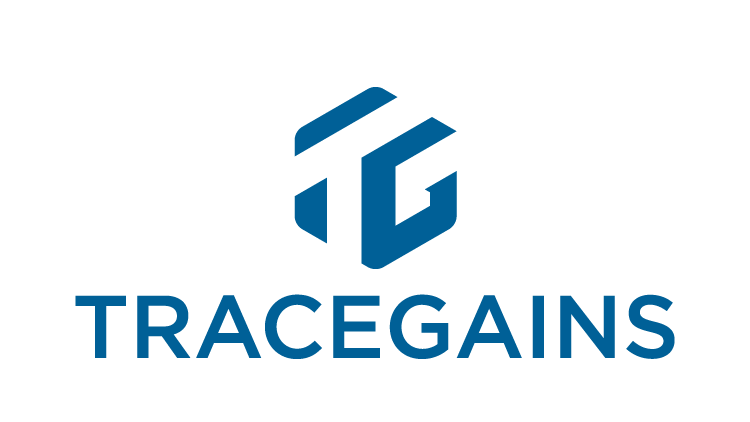Promotional Features
Bridging the data divide: why data-sharing is vital to UK's food & beverage industry
While data is the lifeblood of supply chain efficiency in the food & beverage industry, fragmentation of this data across the supply chain can prove a real roadblock to success. Yet a network data-sharing ecosystem can provide a ready solution, says TraceGains.
The food and beverage sector remains a cornerstone of the UK's economy, and data is the lifeblood of supply chain efficiency and consumer safety. However, as the demand for data surges, a stark issue plagues our industry – data fragmentation. This fragmentation is not just a minor inconvenience; it's a significant roadblock to progress. From farm to fork, data has a role at every stage, guiding decisions, refining processes, and ensuring quality.
The demand-data disparity
To appreciate the nuances of the food & beverage industry’s challenges, it’s essential to acknowledge the overwhelming demand for reliable, relevant and immediate data. Manufacturers, suppliers, and retailers alike operate in a fast-paced environment. The need for information that can be acted upon without delay has never been more paramount. Despite the numerous data sources and tools, there exists a critical gap. Often, the sheer volume of data, while impressive, is riddled with inconsistencies, and these could range from format disparities to outdated information, making its application ineffective.
“The ever-growing need for data in our industry is undeniable. Yet, despite this demand, the quality, accessibility, and resources available for data fall short”
A manual maze of disconnect
One might wonder why fragmented data poses such a concern. The repercussions of disjointed data manifest in several areas. For suppliers, it often means added hours in consolidating information from different sources, risking potential errors. Manufacturers face challenges in ensuring consistent product quality when ingredient data is scattered and inconsistent. This manual handling adds unnecessary costs and risks to the supply chain. Ingredient suppliers and manufacturers find themselves increasingly frustrated, straining relationships that should be built on trust and collaboration.
The introduction of individualised forms and data portals by retailers, brands and manufacturers while well-intentioned, often add to the conundrum. While each form and portal might cater to a specific need, the cumulative effect is an environment where stakeholders have to adapt continually and manage varied data requirements, creating unnecessary complexity and delays.
A call for transformation
It’s high time for action, as this outdated approach to data-sharing is hindering the food & beverage industry's progress. However, there are proven solutions available, and leading this charge is TraceGains.
TraceGains has stepped into this space, understanding the value of both efficiency and precision. TraceGains Gather® presents a harmonised set of documents and forms, ensuring that essential supply chain information is not only preserved but readily available for brands and retailers. This provision champions a seamless environment where the exchange of information is unhindered.
Moreover, TraceGains recognises the duplications and repetitions suppliers often grapple with. With PostOnce® technology, this dilemma is addressed head-on, enabling suppliers to submit their information just once, with the assurance it's disseminated to all relevant entities. This innovation not only eradicates repetitive tasks but also fosters a consistent and streamlined data-sharing approach.
This approach has been adopted across the USA and has become the industry-wide benchmark standard. Brands and retailers gain instant access to the supply chain information and documents they need to streamline and automate quality, compliance and product innovation. By bridging the gaps between retailers, manufacturers, and ingredients suppliers through a unified network, TraceGains has effectively simplified the intricacies historically associated with data exchange and has been able to drastically reduce the time, cost and risk associated with data exchange.
This progression not only signals a new era for data management, but also sets the UK’s food & beverage sector on a trajectory towards heightened collaboration and operational excellence. Such a transformation enables:
1. Supply chain efficiency: A consolidated data platform ensures that information flows seamlessly from one end of the supply chain to the other. This flow is crucial for forecasting, inventory management and ensuring product quality.
2. Consumer safety and compliance: Regulatory standards, both domestic and international, are continually evolving. Having a central data repository can aid in ensuring that products meet these standards, thereby ensuring consumer safety and minimising recall risks.
3. Strategic decision-making: Beyond day-to-day operations, cohesive data can provide invaluable insights for long-term strategies, from identifying consumer trends to optimising production processes.
4. Agile product innovation: With an integrated data approach, brands can swiftly respond to changing market dynamics. Whether it’s sourcing alternative ingredients due to supply chain disruptions, addressing emerging consumer preferences or launching innovative products to capture new market segments, a data-driven approach equips brands with the insights needed for timely and informed product development.
A vision for the future
Let’s not continue to add to the problem but be part of the solution. Efforts such as The Food Data Transparency Partnership exemplify the industry’s dedication to a shared vision. The entire industry, from retailers to manufacturers and suppliers, can come together, innovate and modernise its approach to data sharing.
The future of the UK food & beverage industry relies on the ability to bridge the data divide and usher in an era of efficiency and collaboration. The call for transformation is not just a reactive measure to existing challenges. It's a proactive strategy to ensure the UK’s food & beverage sector remains at the forefront of global innovation and quality.
The dawn of this new era beckons. Recognising and harnessing the multifaceted benefits of networked data solutions will be instrumental in ushering in a period marked by sustained growth, meticulous efficiency and a reputation for delivering unparalleled quality to consumers everywhere.
Sign up for the largest online gathering of food & beverage professionals. Join us on 24 & 25 January 2024 from wherever you are. Together 2024 is about connecting you with the answers and resources you need to harness the tide and achieve change for the better. Change for you, change for your business, and change for the whole industry. We will tap into the collective industry knowledge to seed ongoing innovation and growth. If collaboration is the basis of a sustainable business, then the only path forward is together.
Sign up here.






